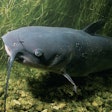In my research for last month's commentary on the Association of American Feed Control Officials (AAFCO), I ran across a long-argued premise made by someone in the petfood industry that there is no such thing as a "complete and balanced" petfood. In the writer's opinion, no single commercial food is truly suitable to serve as the sole source of nutrition, so any implication to that effect for a product is no less than blatant consumer fraud. Further, the case is argued that regulatory bodies are complicit with industry in perpetuating this myth to the detriment of the pet's health.
Is there any basis to this contention? If so, should AAFCO abandon its efforts to define "complete and balanced" and in effect force all petfoods to be "for intermittent or supplemental feeding only"? AAFCO intends to revise its Dog and Cat Food Nutrient Profiles in the near future.
The argument against
A synopsis of the reasoning to proclaim "complete and balanced" petfood to be a myth can be found at www.wysong.net/PDFs/100complete.pdf (URL is case sensitive). Briefly, the argument is that nutrition is not a complete science. Moreover, by its very nature, our understanding of nutrition will never be completely known. Therefore, any claim that a product offers complete nutrition is a farce, and always will be a farce. Examples of cases where consumption of commercial products previously deemed to be nutritionally adequate resulted in deficiencies are given to support the premise.
Why label products as "complete and balanced," then? Well, it is argued to be the result of a combination of arrogance and greed. Petfood companies want pet owners to feed their foods, period. Government wants to facilitate industry desires. Simply put, no one cares about the pets that eat the products, and they suffer as a result.
My response
I wholly agree with the premise that nutrition is not a complete science. However, contrary to the writer's assertion, I don't know any pet nutritionist who has opined otherwise or would ever support the idea that "all is known." After all, if it were a complete science, there'd no longer be any need to train new nutritionists or do further research. That's simply not the case.
For example, we think we have a decent understanding of vitamin D's role in calcium metabolism, but it functions in many other ways as well that are presently only vaguely appreciated (e.g., cell differentiation, cancer, other chronic diseases). Also, there are literally dozens of vitamin D metabolites in the body. We only know about the functions of a few of them. What are the rest of them doing? The roles of carotenoids and other antioxidants, ultra-trace minerals and fibers in pet nutrition are only a few more examples where the possibility for study is ripe.
We know a lot
On a practical basis, though, we know a heck of a lot. While there's constant subtle refinement of established requirements, research sufficient to demonstrate dietary essentiality of new substances gets tougher every day. Even with use of very refined experimental diets, the ability of scientists to detect evidence of nutritional deficiency becomes extremely difficult. Commercial diets, on the other hand, are formulated with ingredients containing very complex mixtures of substances. So, although formulated on the basis of known nutrient content, the nature of these complex ingredients generally provides for the needs of these yet-to-be discovered or appreciated nutrients as well. Thus, even if we don't understand everything, in most cases it doesn't make a practical difference.
I also agree that since we will never truly know all, there is no way to completely, unequivocally guarantee with 100% certainty that a given product will fully meet the nutritional needs of every individual animal to which it is fed. This is not a new concept; I've previously referred to the AAFCO Profiles, feeding trials, etc., as "reasonable assurances" of nutritional adequacy. However, that does not mean the effort to define what is meant by "complete and balanced" based on current understanding has no merit.
The need for standards
Although "complete" assurance is infeasible, if not a scientific impossibility, there still needs to be a way to differentiate the reasonable from the unreasonable. In other words, the true purpose of these standards is to weed out the products that are far more likely to be nutritionally inadequate based on what we do know.
Failure for a product to meet the AAFCO Profiles and/or feeding trials, as imperfect as they may be, should be taken as a sign for the pet owner not to trust nutritional claims for that product. Where the writer sees greed and arrogance, I see a noble, conscientious effort to offer sensible guidance to consumers and protect pets from potential harm.
Yes, as we learn more, nutritional recommendations are tweaked, and in the process, some diets previously thought to be adequate are found not to be. In my opinion, the alternative to enforcement of some form of nutritional standards, i.e., to throw up our hands and say nothing's "complete," will do more harm than good in terms of protecting pets' health.
Sound principles lacking
Without some yardstick for comparison, there is no way of telling the reasonably good from the absolutely terrible. The advice to "use the same common sense in feeding your pets that you use for feeding your family" and "fresh foods fed in variety are always superior" doesn't help, either. I've seen multitudes of pet diets (especially recipes for homemade formulations) where adherence to sound nutritional principles is sorely lacking. Some are grossly deficient in meeting the most basic nutrient needs. Also, I'm not sure how much common sense is out there.
Notwithstanding attempts to eat a fresh variety of foods, I suspect that my dogs and cats are eating a much closer to "complete" diet than I am, and assume that's the case in many other households as well. In summary, while I respectfully appreciate the opinion of the writer and in fact agree with some aspects of it, I think the blanket disparagement of efforts to define "complete and balanced" petfoods is totally unwarranted. While we will most likely never know everything there is to know about pet nutrition, the pursuit of that ideal is a laudable goal.














